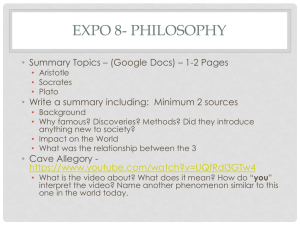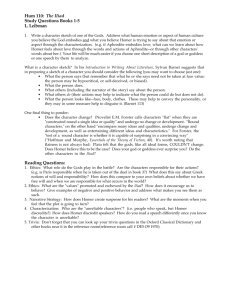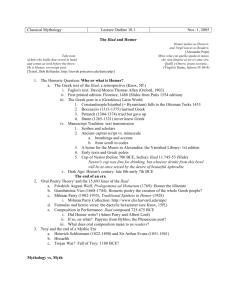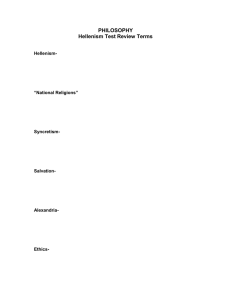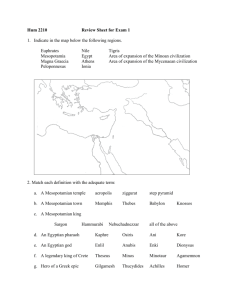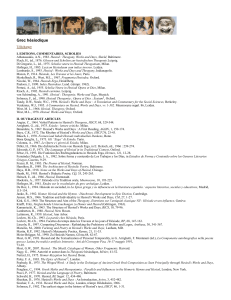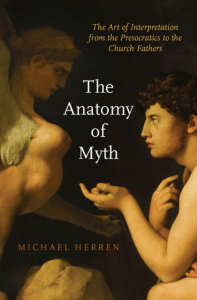ANCIENT PHILOSOPHY: Intro to some preceding conditions I. Before philosophy
advertisement
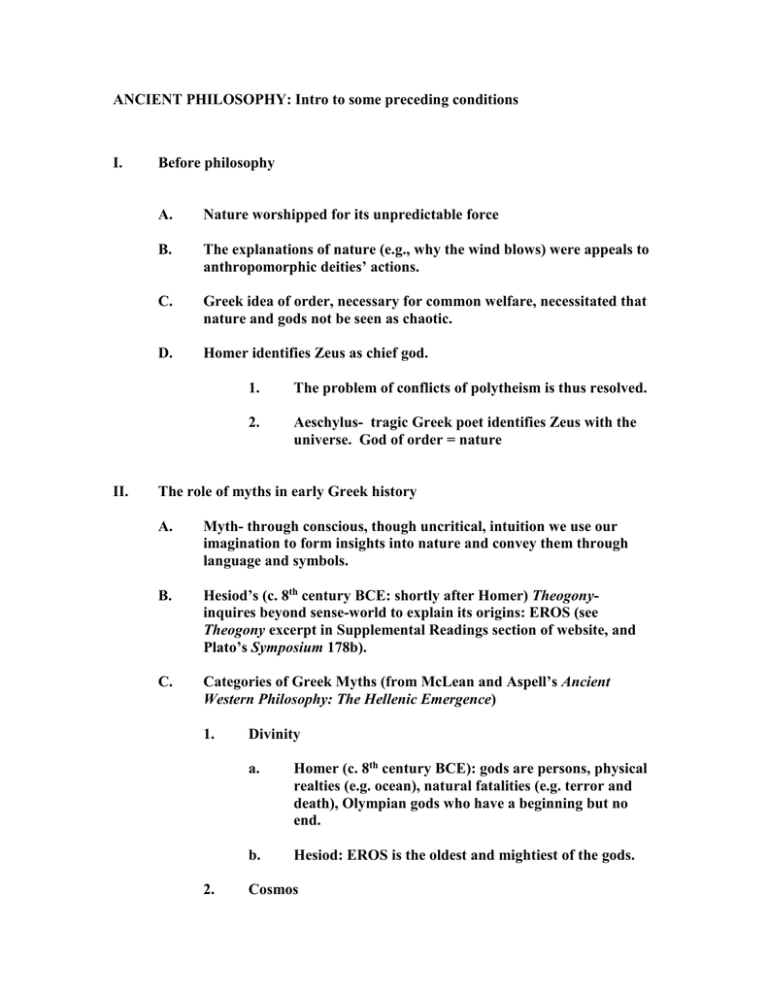
ANCIENT PHILOSOPHY: Intro to some preceding conditions I. II. Before philosophy A. Nature worshipped for its unpredictable force B. The explanations of nature (e.g., why the wind blows) were appeals to anthropomorphic deities’ actions. C. Greek idea of order, necessary for common welfare, necessitated that nature and gods not be seen as chaotic. D. Homer identifies Zeus as chief god. 1. The problem of conflicts of polytheism is thus resolved. 2. Aeschylus- tragic Greek poet identifies Zeus with the universe. God of order = nature The role of myths in early Greek history A. Myth- through conscious, though uncritical, intuition we use our imagination to form insights into nature and convey them through language and symbols. B. Hesiod’s (c. 8th century BCE: shortly after Homer) Theogonyinquires beyond sense-world to explain its origins: EROS (see Theogony excerpt in Supplemental Readings section of website, and Plato’s Symposium 178b). C. Categories of Greek Myths (from McLean and Aspell’s Ancient Western Philosophy: The Hellenic Emergence) 1. 2. Divinity a. Homer (c. 8th century BCE): gods are persons, physical realties (e.g. ocean), natural fatalities (e.g. terror and death), Olympian gods who have a beginning but no end. b. Hesiod: EROS is the oldest and mightiest of the gods. Cosmos a. 3. 4. Humans a. Homer: the soul that exists in Hades is a shadow of the corresponding earthly soul. It is devoid of consciousness and vigor. b. 6th century religious movement, Orphism: Orphism claims that the soul is divine and thus exists in that form in the afterlife, maintaining its divine essence. Ethics a. III. Hesiod: well before Titans and Olympians, Chaos (“immeasurable abyss”) existed. Homer: military ethics. Focus on the here and now. Philosophy A. Philosophers do not trust the uncritical imaginations of the mythicists. They ask questions about evidence (e.g. “what evidence is there for that view?” and “what view does the available evidence support?”). B. But, Aristotle (in his Metaphysics I.ii) considers Homer and Hesiod primitive philosophers because of their sense of wonder. C. The first philosophers were concerned with the natural world and explanations of it. Philosophy, then, was really a scientific enterprise. 1. In general, it was not until Socrates (470-399 BCE) that Philosophy becomes concerned with internal questions of virtue and the soul.

